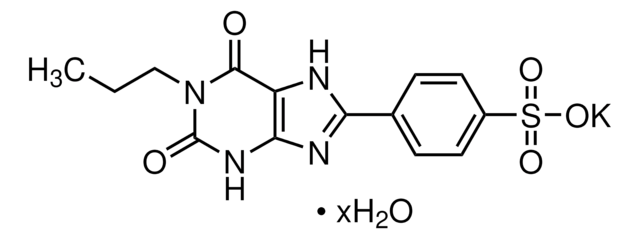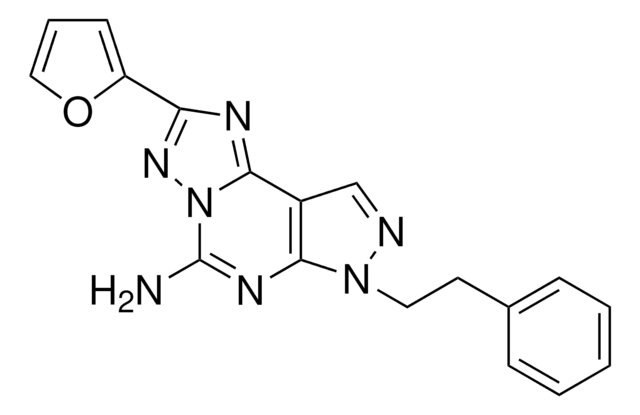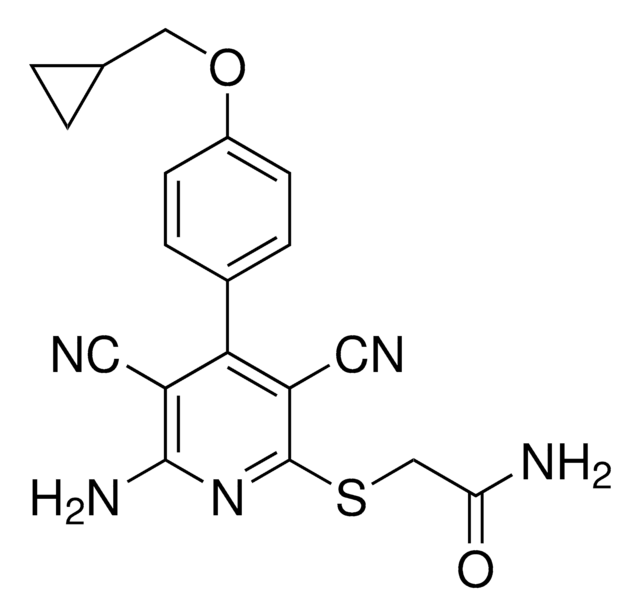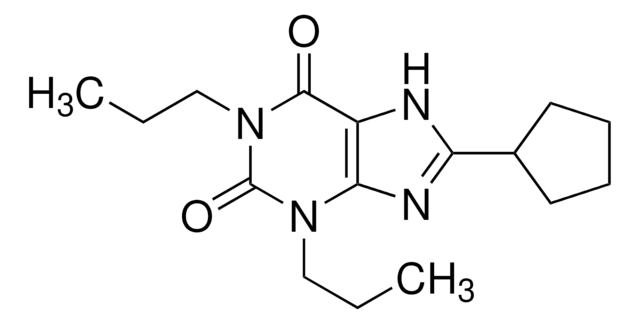SML0212
PSB36
≥98% (HPLC)
Synonym(s):
1-Butyl-3-(3-hydroxypropyl)-8-(3-noradamantyl)xanthine, 1-Butyl-8-(hexahydro-2,5-methanopentalen-3a(1H)-yl)-3,9-dihydro-3-(3-hydroxypropyl)-1H-purine-2,6-dione, PSB-36
About This Item
Recommended Products
Quality Level
assay
≥98% (HPLC)
form
powder
storage condition
desiccated
color
white to tan
solubility
DMSO: ≥20 mg/mL
storage temp.
2-8°C
SMILES string
CCCCN1C(=O)N(CCCO)c2nc([nH]c2C1=O)C34C[C@@H]5C[C@@H](C[C@H]3C5)C4
InChI
1S/C21H30N4O3/c1-2-3-5-25-18(27)16-17(24(20(25)28)6-4-7-26)23-19(22-16)21-11-13-8-14(12-21)10-15(21)9-13/h13-15,26H,2-12H2,1H3,(H,22,23)/t13-,14+,15-,21-
InChI key
CIBIXJYFYPFMTN-FZUGUKJMSA-N
Application
Biochem/physiol Actions
Features and Benefits
Storage Class
11 - Combustible Solids
wgk_germany
WGK 3
flash_point_f
Not applicable
flash_point_c
Not applicable
Choose from one of the most recent versions:
Certificates of Analysis (COA)
Don't see the Right Version?
If you require a particular version, you can look up a specific certificate by the Lot or Batch number.
Already Own This Product?
Find documentation for the products that you have recently purchased in the Document Library.
Articles
We offers many products related to adenosine receptors for your research needs.
Our team of scientists has experience in all areas of research including Life Science, Material Science, Chemical Synthesis, Chromatography, Analytical and many others.
Contact Technical Service








